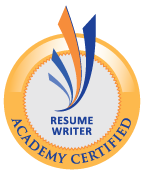Two of the Most-Asked Resume Questions: How long? Why no pronouns?
Amy Schofield, ACRW has reviewed 5,000+ resumes and has worked with clients around the world. While she has received numerous questions regarding resumes, there are two that seem to be on everybody’s mind:
How long should my resume be?
There is no correct answer to this question. Your resume should be long enough to convince the hiring manager to interview you, and not a word longer. Surveys and conversations with hiring managers consistently find that a one- OR two-page resume is appropriate, as long as the information being shared supports the length. Therefore, most new college graduates should have a one-page resume, as they don’t have the depth of experience of a senior executive, who could have a two-page resume (and perhaps even three). Federal resumes are a completely different ballgame and are often five pages or longer.
However, for every “rule” there is an exception. If the information you are including on the resume will help the hiring manager, it should be on your resume. Thus, a college student who has worked numerous internships, completed significant classroom projects, held student leadership positions, had relevant work experience, and participated in industry associations could easily have a two-page resume.
No matter the length of the resume, the focus should be on highlighting the candidate’s accomplishments, not basic work responsibilities.
What should be immediately apparent to hiring managers, no matter the resume length:
- What sets you apart from other candidates.
- Your key strengths and accomplishments.
- What kind of position you’re targeting.
Why are resumes written without pronouns?
Resumes use a unique style of writing to emphasize brevity in order to maximize the reader’s time. This is especially important since the average resume receives less than 60 seconds of the reader’s time upon first review.
Many people find this style of writing a bit confusing, so here is an explanation about “resume speak”:
- Resumes use a version of first-person style, but omit the subject (“I” / “me” / “my”).
- Resumes use present tense for activities you currently perform and past tense for past activities and achievements, particularly for older positions on your resume but also to describe responsibilities you once performed in your current job, but no longer do.
- To emphasize brevity, resumes omit most articles (“a” / “an” / “the” / “my”), except when doing so would hurt the readability of the sentence.
- Resumes are written in a strong, active style, emphasizing action verbs (“direct” / “manage” / “lead” / “conduct”) instead of passive descriptions of activity.
Therefore, this paragraph is incorrect:
“I am a dedicated professional with extensive experience in corporate accounting, budgeting, and financial reporting. You will find me to be consistently successful in providing accurate information for management decision-making. I can develop and implement accounting training programs to increase staff efficiency and productivity. I am also an effective communicator with the ability to work with individuals at all levels of employment.”
Here is that same paragraph, rewritten in “resume speak”:
Dedicated professional with extensive experience in corporate accounting, budgeting, and financial reporting. Consistently successful in providing accurate information for management decision-making. Develop and implement accounting training programs to increase staff efficiency and productivity. Effective communicator with the ability to work with individuals at all levels of employment.”
Do you have any specific questions about your resume that you think others may be wondering as well? Leave us a note below and we’d be happy to address it within another blog post!

Note: This blog post only touches on certain aspects of this topic and is not a comprehensive list. This blog post is an educational and informational resource for job seekers and is not a substitute for working with a resume writer or other professional. See our Terms and Conditions for additional information.






Comments are closed.